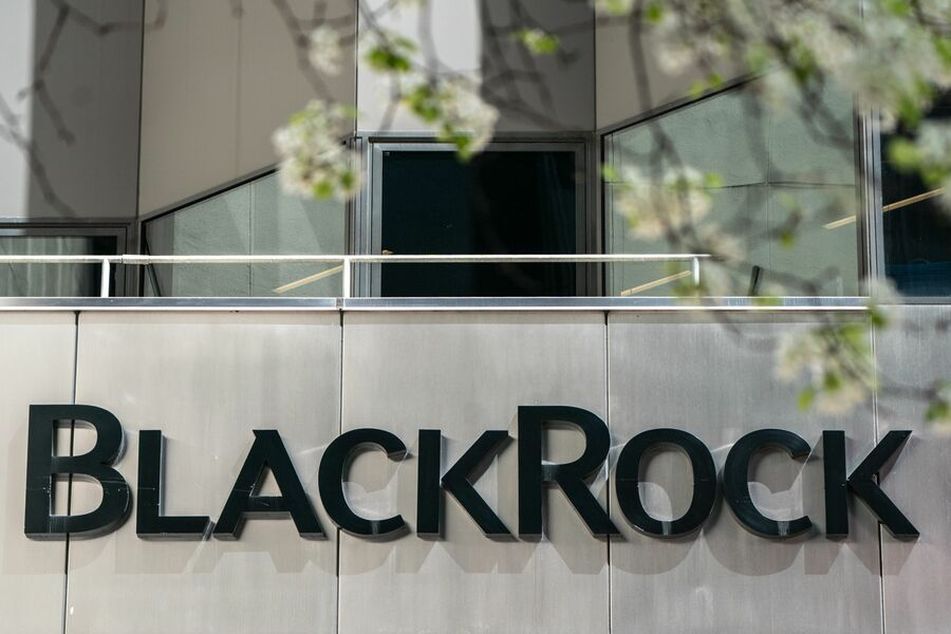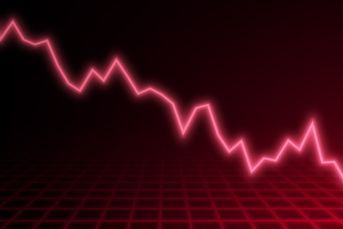BlackRock tilts the tables on ESG toward value stocks

A note circulated by the Wall Street giant has triggered a rethink across the industry.
A text sent by BlackRock Inc. to financial advisers has opened up a conversation about the relative scarcity of value-based investing among managers of ESG funds.
Most managers of ESG equity funds have filled their portfolios in recent years with growth stocks, like those found in the tech sector. It’s precisely this group however that’s been hammered this year, creating losses approaching as much as 30%.
Now there’s a rethink going on across the industry.
One of the main reasons? A note circulated in May by BlackRock that seems to have tilted the tables toward value. The firm recommended that financial advisers reduce their tech and small-cap positions and lock in gains from commodities and energy stocks after “handsome rallies.”
The world’s largest asset manager also mentioned buying stakes in U.S. infrastructure and dividend-focused stocks (which tend to do well in periods of “tightened financial conditions”), increasing holdings of inflation-protected Treasuries and maintaining underweight positions in emerging market stocks.
The decision affected two of the firm’s largest growth-stock oriented ESG-labeled exchange-traded funds, iShares ESG Aware MSCI USA (ESGU) and iShares ESG Aware MSCI EM (ESGE), with both funds suffering net outflows in May, according to analysts at Morningstar Inc.
BlackRock declined to comment on specific funds in its model portfolios, which are used by scores of investors to decide how to allocate money in stocks, bonds and other asset classes.
BlackRock wrote in its note that it continues to prefer U.S. stocks for “their historical relative resilience to a broad range of economic scenarios.” The New York-based firm recommended a modest reduction in overweight equity holdings to lower risk exposure and move closer to “neutral on the value/growth style trade.”
So does this mean BlackRock, whose CEO (despite the firm’s massive financial support for Big Oil) likes to tout it as an ESG leader, is backing away from its role as ostensible ESG cheerleader?
Jon Hale, director of ESG research for the Americas at Morningstar Inc., said that while BlackRock’s comments struck a “defensive chord,” they don’t mean it’s moving away from promoting funds marketed as environmental, social and governance — such as ESGU and ESGE.
The reality is most ESG-focused equity funds skew stylistically toward growth, Hale said. In the large-cap sector, Morningstar categorizes 30 ESG funds as large growth and only 17 as large value. The 30 large-growth ESG funds have lost 25.7% so far this year as of July 15. By contrast, the 17 large-value ESG funds have lost 14.1%.
Managers of ESG funds have historically preferred to buy shares of companies in growth industries like technology because they tend to have fewer material ESG risks, Hale said. In fact, the five sectors with the most ESG risks — energy, utilities, basic materials, consumer staples and health care — are more heavily weighted in value funds than in growth funds.
The average large-value portfolio’s weighting in those five industries is about 44%, compared with 20% for large-growth funds, Hale said. By contrast, large-growth funds devote an average of 53% of assets to the three sectors with the lowest ESG risk — real estate, consumer cyclicals, and especially, technology. Large-value funds devote an average of only 20% of assets to those sectors.
“Even with all this data, I’ve got news for you: There are no intrinsically ‘ESG’ or ‘non-ESG’ companies,” Hale said.
The use of ESG signals to companies that investors believe it’s important for them to address issues like energy efficiency, and most companies don’t want to be seen as ESG laggards, Hale said. “In light of that, I can’t think of a better place stylistically to practice ESG than value.”
According to Hale, here are some ESG funds to consider for more neutral or value-leaning style exposure:
- For large-blend ESG funds with neutral, but slightly value-tilted profiles, consider Boston Trust Walden Equity (WSEFX) or Northern US Quality ESG (NUESX).
- For large-blend ESG funds with more clear-cut value tilts, check out DFA US Sustainability Core (DFSIX) or Pax US Sustainable Economy (PXWGX).
- For large-value ESG funds, check out Calvert US Large Cap Value Responsible Index (CFJIX) or Nuveen ESG Large-Cap Value ETF (NULV).
Tips on mentoring programs from Envestnet’s Jean Heath
Learn more about reprints and licensing for this article.








